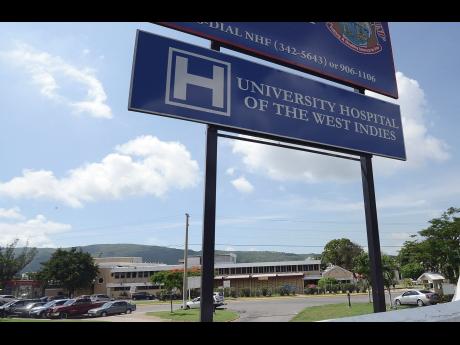Eight babies died from three infections at UHWI, not 12 - McCartney
The resigned chief of medical staff at the University Hospital of the West Indies (UHWI) Professor Trevor McCartney is disputing claims by the Health Ministry that 12 babies died at the facility as a result of bacterial infections.
According to McCartney, eight babies died – one in June from the serratia bacteria; six in August and September from klebsiella pneumonia; and one in October from pseudomonas.
There was no previous report about the third bacterial infection, pseudomonas.
The Health Ministry has been reporting that 12 babies died at the UHWI in St Andrew and seven at the Cornwall Regional in St James from the serratia and klebsiella bacteria.
The detection of three potentially deadly infections in four months raises concern about the sanitary conditions at the UHWI.

McCartney says, clearly the sanitary guidelines for staff and parents could have been "stronger" but also revealed that the outbreaks coincided with the severe water restrictions for the corporate area that affected the UHWI.
"After the restrictions had been lifted everything had gone back to normal," he said raising the possibility of a cause and effect.
READ: Resigned hospital official says UHWI wanted to take pressure off Health Ministry
At the same time, McCartney said the hospital had been making an effort to promote proper sanitary conditions.
"The hospital has an active infection control committee which monitors on a daily basis any outbreak of infection anywhere in the hospital," he said.
McCartney said in the past three years, the activities of the committee had been significantly ramped up because some staff members had been engaging in certain practises that could promote infections.
According to McCartney, as a consequence, a major education campaign on proper sanitary practices was undertaken.
But he noted that the frequent changing of medical staff and the failure of parents to consistently adhere to established guidelines could have compromised the efforts.

